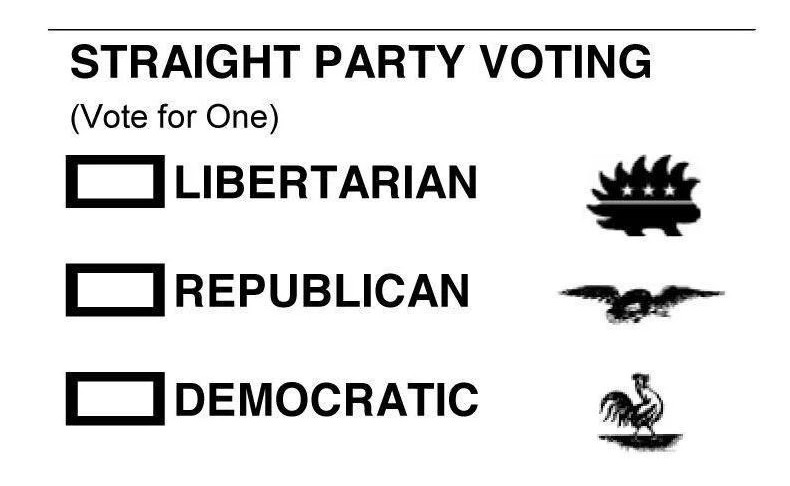My Criteria for Voting on Legislative Proposals
This fact has been quite aptly demonstrated by what a first glance appears to be a confusing conundrum: Over the past year, the House of Representatives has considered a tax increase proposal, over, and over again. Upon observation, the observer will note that it’s principally the same proposal each time it appears before the House; new taxes are added with each new iteration, but at its core the proposal is a massive increase on gas and tobacco.
Here’s a second component of the conundrum: Legislators will vote against the tax increase on one day, only to subsequently flip and vote for it in a subsequent vote.
Imagine the confusion and frustration of the voter who’s legislator has been on both sides of the issue. How do they hold this slipply critter to account at the ballot box?
The average observer and voter will likely forgive a legislator for voting differently on issues than they would prefer. But very little likely frustrates an observer more than a legislator who votes according to inconsistent and illogical philosophy.
Legislators cast as many as 1000 votes each year. With that many votes, it is vital for each legislator to apply a consistent voting criteria.
It is tempting for legislators to cast votes based on the emotion of the moment, change their votes while the vote is ongoing (depending on whether the bill is winning or losing), or vote based on personality and friendship.
Legislators may cast a vote on an issue that is contrary to the principles he/she campaigned on because of their relationship with a special interest group or a particularly outspoken constituent. This creates frustration for those voters and observers who can’t predict how their legislator will vote.
Don’t think that inconsistent voting is monopolized by legislators who espouse a particular ideological point of view. Both conservative and liberal lawmakers are subject to acquiring the “change-itis” disease which sways their votes according to the most illogical of criteria.
It is a moral imperative for legislators to do their best to resist the temptation to cast votes according to emotion. Legislators must be prepared to explain their votes in a logical way according to a consistent philosophy for which their voters and observers can hold them to account.
I learned this lesson during my second term in office.
After I cast a vote, I often walked to the back of the House chamber on my way back to my office. This required walking past the new freshmen legislators who are traditionally seated towards the back of the House chambers.
I tend to vote no on more proposals than the average legislator. The freshmen noticed this and invariably my trek back to the office was subject to interruption from one of the freshmen. They were new to the Legislature and wanted to know why I voted against a bill that most were supporting.
I quickly learned that I better be prepared to explain my vote before I headed back to the office.
Over the years, I put in place a system of criteria through which I filter my votes. These criteria are based on the principles that I campaigned on. They also allow me to explain my votes in a clear, understandable way and in just a sentence or two.
Voting on legislation is the singular most important part of the state representative’s job and in that role, I have endeavored to cast the approximate 1,000 yearly votes according to a set of clear and consistent criteria.
Here is my voting strategy: I have never and will never intentionally walk or miss a vote, and I will cast each vote in a consistent manner which is not capricious or arbitrary, but is instead aligned with the principles that I campaigned on as a candidate for office (i.e., my verbal contract with the House District 31 constituency, a contract that I cannot violate.)
As I have attempted to apply principle to policy, I have found that I have evolved into one of the House’s most prolific “no” voters. That said, it’s been my goal to never fall into the trap of voting no for the sake of voting no but to be able to explain each no vote. I have found that if I have a sound and consistent basis for voting, other House members are appreciative of the thought process behind the no vote even though it is a vote against their bill. While they may disagree with my reasoning – they know that the vote is not personal.
To accomplish the goal of consistent principle-based voting, I have developed a checklist of factors; the violation of any single factor will likely lead me to vote no on a proposal. It’s a simple six-part checklist, but I suspect it catches up to 30 percent of the bills that we consider each year.
It is as follows:
Are new government bureaucracies, boards, or commissions created by the proposal? If so, I will almost always vote no. In some years, I have found that lawmakers attempted to create new government entities about as fast as we could repeal old ones.
Does the proposal increase fees or taxes? These types of proposals still appear and advance through the Legislature several times a year. At a time when one can reasonably state that federal, state and local government taxes, fees and pass-on costs to the taxpayer take over 50% of his income, there is a great calling for conscientious legislators to stand in defense of the taxpayer. Instead of raising fees and taxes, government must become more efficient and cost-effective. These bills are an easy no vote for me.
Are tax loopholes, corporate welfare, pork earmarks, special interest benefits, payouts or programs created or expanded? These bills frequently create specific government giveaways and have created the current and untenable state of dirigisme; i.e., the state’s most affluent and powerful citizens are also some of the most dependent upon growing and expanding the size of government – a fact that explains why many leading members of the state’s majority party have devolved into a regrettable state of continual and perpetual conflict with the principles upon which they purport to believe as they campaign for election and re-election. I have regretted observing the principle-gutting impact of these bills, they have wreaked havoc on the values of lawmakers, and for me, these proposals are always an immediate red vote.
Will new government regulations result if the bill is approved? The Legislature considers numerous bills that expand current law. While there are sometimes good reasons for these proposals, more often than not, the right vote is the no vote.
Does the bill exempt government agencies from transparency laws? Each year agencies sponsor bills to create new open records and open meetings exemptions and it is vital to stop these bills whenever possible.
Are systemic checks and balances upon corruption (such as purchasing laws) weakened? For example, every so often the Legislature takes the unfortunate step of increasing no-bid purchasing limits. I have grown very uncomfortable with the pace by which these limits are being lifted (especially as it relates to county government spend) and I fear that a systemic operandi of corruption could easily backfill the void left in the absence of purchasing system checks and balances.
Of course, this list is a simplistic and basic set of criteria and there is certainly additional nuance to voting on a proposal; however, if a lawmaker can consistently cast his votes according to this simple checklist, he will generally support and defend taxpayers from intrusive and overreaching government and the special interests which exert much more influence over the government than the average constituent.
State Representative Jason Murphey (R-Guthrie) represents House District 31. He may be reached via e-mail at: Jason.Murphey@hd31.org










Latest Commentary
Saturday 31st of January 2026
Saturday 31st of January 2026
Saturday 31st of January 2026
Saturday 31st of January 2026
Saturday 31st of January 2026
Saturday 31st of January 2026
Saturday 31st of January 2026
Saturday 31st of January 2026
Saturday 31st of January 2026
Saturday 31st of January 2026
Saturday 31st of January 2026
Saturday 31st of January 2026
Saturday 31st of January 2026